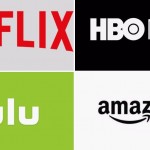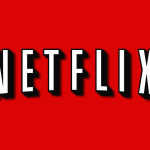By William Page – FilmDoo Co-founder
Within the next two years the global digital entertainment market is expected to overtake both the physical DVD/Blu-Ray sales and the global box office as people increasingly switch to consuming entertainment online. Video on demand (VOD) platforms such as Netflix and Amazon are the platforms leading this charge as they expand their content base and open up in new markets and, in doing so, capture an ever greater market share.
As a result of this expansion, both platforms have also needed to expand their content libraries to include foreign language films for the markets that they are operating in. It’s no surprise then that this became one of the most discussed topics during the Berlin Film Festival’s European Market, where Netflix was picking out the best of the Foreign Language movies to be available in the VOD service. The latest of its acquisitions were India’s Sundance hit Brahman Naman, Chile’s box office hit No Filter, and German comedy Look Who’s Back. This is indicative of the kind of change that is being brought in by VOD, especially now that there are efforts to bring films online within the same day. So rather than wait for the usual sales route, they get picked up exclusively on an all rights basis. Theatrical releases will soon be a thing of the past unless cinemas and theatres find ways to join the wagon. But films, especially good ones, will remain alive forever with VOD service.
Platforms are acquiring all rights
Netflix, Amazon and other platforms are often acquiring titles on an all-rights basis but rarely do they bother with a traditional theatrical release. Even if they were to want a theatrical release many of the main cinema chains and arthouse theatres refuse to show films from the VOD platforms, perceiving them to be a threat to their business. The VOD platforms are choosing to directly premier the films online benefiting from the hype such titles have gathered on the festival circuit. However, not all platforms are following the same strategy with Amazon, for example, giving a window of 90 days showing in theatres on their acquisition before online release.
No doubt independent arthouse films, which are the traditional bread and butter of the arthouse business, are dying out and it remains to be seen how the theatrical arthouse scene will respond to this threat. This change is especially worrying for the future as data released from Variety points to younger audiences preferring to stream movies than see them at the theatre. Unless arthouse theatres find a new way to encourage younger audiences to watch films in theatres, they will see dwindling customers over the coming years.

A changing film acquisition system
There are positive and negative points in direct acquisition by the VOD platforms. On the one hand, by dealing directly with the producers and filmmakers, Netflix is paving the way for a more transparent set up of film distribution globally. No longer shall producers and filmmakers be limited by the work of sales agents in the distribution of their films. Indeed the role of sales agents will need to change for them to continue to be relevant in the industry.
On a wider level these changes will impact the distribution chain as well as the role of film sales agents and local distributors as filmmakers and producers will have a greater choice in how they distribute their films. A deal with platforms such as Netflix is more attractive for creative filmmakers, especially for smaller films that may not otherwise get much exposure in theatres. However, there are certainly cultural differences in the choices that will be made by filmmakers and producers with producers and filmmakers in some countries, for example France, preferring for their films to still premiere and be shown in theatres rather than on a VOD service. Nevertheless, the business strategy of showing films via VOD streaming service may not be the ideal setup for filmmakers but as long as the films are shown and not shelved we believe it has its merits.
Platforms acquiring content at the pre-production stage
Over the next few years we foresee the VOD platforms buying the rights for movies at the pre-production stage. They will be able to do so as they benefit from substantial amount of data collected by their algorithms which allow them to understand exactly what kind of content their customers are looking for. This will allow them to make smarter and less risky film acquisition decisions than the previous rather subjective choices made by sales agents and distributors earlier
Direct acquisition at earlier stages is likely to have wide reaching repercussions. The financing of films is likely to be heavily impacted by this as the filmmakers and producers will be able to finance their pictures more easily through having such agreements in place before the cameras start rolling. It’s also likely to lead to more films being made as more money flows into the production of content.

Greater choice for the public
The move of the VOD platforms into direct acquisition of titles will also impact the marketing of films. Previously arthouse and independent film struggled to gain attention as they had a limited release and small marketing budgets to grab people’s attention. Now through social media and film discovery platforms like FilmDoo, films are able to be promoted directly to individuals who are likely to be interested in seeing them.
Even older films left on the shelves can now see the light of day and continue to be watched and enjoyed by audiences. The marketing of movies through social media have flourished and is now more relevant – and people engaging with the filmmaker and actors gives the personalised touch. Marketing by word of mouth is becoming more apparent.
Problems with the move into direct acquisition
The problem with the strategy of direct acquisition by the VOD platforms is accessibility and exclusivity. In these ongoing paradigm shifts, access to content should not be owned by one business. Ownership and control over content encourage piracy. We believe that to eliminate content piracy, non-exclusivity and equal opportunity in film distribution should follow the shift. This will also give independent and mainstream filmmakers the assurance that their films will be shown and appreciated by global audiences.
The key word is “˜relevance’. Will theatres, cinemas, producers and sales agents survive the irrepressible change sweeping the old and irrelevant off its path? With Netflix buying before cameras start rolling, the usual financing scheme will change. The question is, will this change pave the way for more films being created and distributed to more viewers? Or will exclusivity be the death of distribution because Netflix itself may become a film’s exclusive judge prioritising profit making potential above art and equal opportunities? No matter what happens, we have reached the dawn of a new age in how films are financed, produced and distributed. Who knows the wider reaching impacts these changes will have on the industry?





